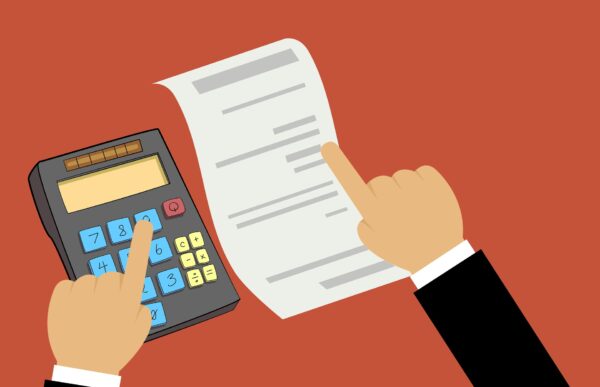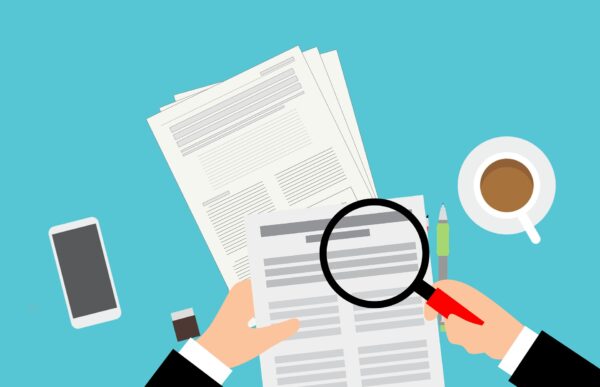The end of the financial year can be a stressful time. However, you can prepare yourself and be organised. Use the following points as guidance to help yourself prepare for the end of the financial year.
- Collect past due invoices and write off any debts –
It is important that you write off any bad debts from the 2022 financial year before the 31 st of March in order to claim a deduction for bad debts. So, check out your accounts receivables list and write off any receivables that are not recoverable, this way you won’t have to pay tax on income that you will not be receiving.
It’s also important to have the cash flow to continue into the coming financial year, so what about debts that are recoverable? To collect the money that customers owe to your business you will have to put in a little legwork and try to collect past due invoices before the new year.
While for some customers a gentle nudge with a simple invoice reminder will do the trick. Others may need some additional nudging. What can you do? You can:
- Set up invoice payment terms (e.g., due dates)
- Document the payment process
- Ring the customers with past due invoices
- Establish a direct debit payment option
- When you do reach out to customers about their past due invoices, be professional. Be understanding, patient, and positive when you reach out to late-paying customers. And if collecting payments from those customers is difficult, consider offering them a payment plan. The customer might not be able to pay their invoice off all at once so negotiating an installment plan can help you get paid faster. While this shows to customers that you are understanding of their personal situation and care about their needs, make sure not to drag the payment plan for too long.
- Alternatively, consider hiring outside help if you really can’t collect the money yourself. Collection agencies, such as Baycorp and Debtworks, can help you collect past due invoices for a price. Generally, the collection agency keeps a portion of the total amount due, but this could be better than not collecting any of the payment at all.
- Stock take and account for your inventory
if you carry large amounts of stock you will most likely have obsolete items that need to be thrown out. Carry out a stocktake before 31 st March and write off any missing or obsolete stock during the financial year. This way you will start off with the correct amount in the next financial year.
Getting an accurate count of the materials and supplies you have on hand ensures you don’t wind up with empty shelves or experience inventory shrinkage by ending up selling expired goods. It can also accurately how much you spent on inventory during the year and its value, helping you better plan for next year’s inventory, particularly for busier seasons coming up.
- Reconcile bank accounts and credit cards
Reconciling your bank accounts and credit cards is a major procedure for you and us as your accountants. Doing so means we can verify that your accounting records match your bank accounts and that there have been no dodgy activities and that your business’ cash flows are safeguarded from inaccurate balances.
To reconcile your accounts, compare your bank and credit card statements to your accounting records. Your statements should match the balance listed in your books, but if they don’t you’ll need to do a little investigation to find why there’s a difference. Once you find the difference, you’ll need to make adjustments to make the two records match.
If you have your bank feeds set up on Xero, this reconciliation process will be easier and Xero can pick up the transactions that’s causing differences – saving you time from investigating yourself.
- Buying business assets, stock or consumables?
While buying business assets, stock or consumables just prior to the year end to reduce tax works. It may not be sensible, however, to spend a dollar just to save a few cents. But if you’ve been holding out for too long on an important purchase, now is the time to do so.
- Organising and backing up business receipts and information – consider using our Shared Google Drive
Are you still storing your business receipts in a shoebox or that same folder with dividers? If so, you need to rethink the way you organize business receipts to tidy up for the new year.
Disorganised receipts can put your business at risk of sloppy and inaccurate books. Messy records can also increase your chances of having errors or missing out on deductions on your business tax return and causes more issues into the future.
SHARED GOOGLE DRIVE
To get your business receipts organized prior to year-end, you can consider going digital and use our Shared Google Drive to upload your digital receipts and documents in an organised manner. We have a set of subfolders to start you off, and you can add more to further organise your documents for your own convenience. As an added benefit, doing so will also ensure you securely save your documents for the new year – since the last thing you want to happen is to lose important accounting information this year, the past and future. You don’t need to worry about losing your documents, since the folder is only shared with you and securely backed up on the cloud if a disaster is to ever happen
If you’d like to stick to your current filing system, consider the following:
- Sorting receipts by type of expense
- Using folders and labels
- Organising receipts chronologically
- Storing receipts digitally on your computer or device. You don’t need a high quality scan of each and every document you have. For day to day receipts a clear readable photo is enough, but for important documents such as legal agreement – scanning would be more appropriate.
If you use Xero or another accounting software, you don’t have to worry about backing up information since your transactions are stored in the cloud. You can even attach your scanned receipts and documents to transactions to better track them.
- Now what? Consider getting your accounts done and out of the way
Getting your accounts done and returns filed is the best thing you can do for you and your business. Knowing how much tax you will pay in advance can give you time to incorporate a plan in paying it off in your cash flows, so you can pay it on time – giving you a peace of mind. If you are also planning to get a loan for a new home soon, doing your accounts early can make sure your loan is approved on time. So on that note, why don’t you send all your correspondence through to us and we will take it from there!








